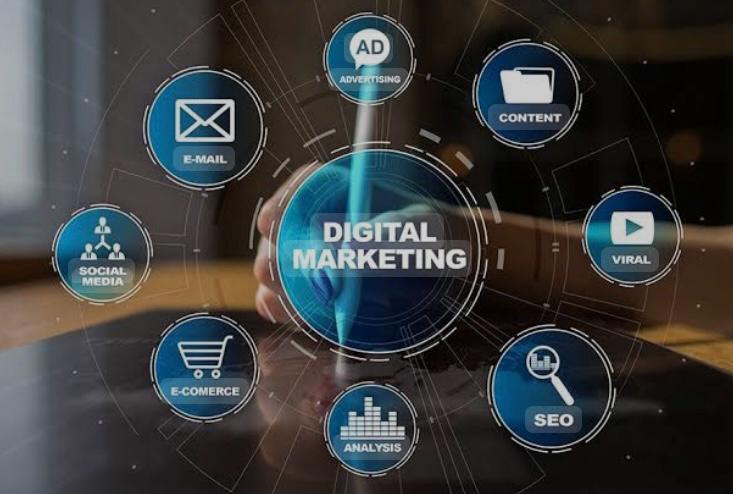
Digital marketing refers to the use of channels, platforms, and technologies to promote products, services or brands to consumers. It encompasses a wide range of online marketing activities aimed at reaching and engaging with a target audience through the internet and electronic devices.
IMPORTANCE OF DIGITAL MARKETING IS CRUCIAL FOR BUSINESSES FOR SEVERAL REASONS:
- 1.Wide Reach: Digital marketing allows businesses to reach a global audience, breaking geographical barriers
- 2.Cost –Effective:
- Compared to traditional marketing methods, Digital marketing is often more affordable and provides a higher return on investment (ROI)
- 3.Targeted Advertising:
- Businesses can use digital marketing tools to target specific demographics interests and behaviours, ensuring that their marketing efforts reach the most relevant audience.
- 4.Improve Conversion Rates:
- With strategies like email marketing, search engine optimization (SEO) and pay-per-click (PPC) advertising, businesses can attract and convert leads more efficiently.
- 5. Access to Mobile Users:
- With the rise of mobile device usage, digital marketing ensures businesses can reach on the go, enhancing the customer experience.
KEY COMPONENTS OF DIGITAL MARKETING:
- SEARCH ENGINE OPTIMIZATION(SEO):
- stands for Search Engine Optimization. It’s the practice of optimizing your website and its content to increase its visibility and ranking in search engine results pages (SERPs). The goal of SEO is to improve the quantity and quality of traffic to your website through organic search results. This involves various strategies and techniques, including keyword research, on-page optimization (such as optimizing titles, meta descriptions, and headings), off-page optimization (such as link building), technical optimization (improving site speed, mobile-friendliness, etc.), and creating high-quality, relevant content that resonates with your target audience.
- CONTENT MARKETING:
- Content marketing is a strategic marketing approach focused on creating and distributing valuable, relevant, and consistent content to attract and retain a clearly defined audience—and, ultimately, to drive profitable customer action. The key emphasis is on providing valuable information to potential customers rather than directly promoting a brand or product
Social media marketing
- Social media marketing is the use of social media platforms and websites to promote a product or service. It involves creating and sharing content on social media networks to achieve marketing and branding goals.
- Here’s a breakdown of what social media marketing typically involves:
- Content Creation: Creating engaging and relevant content such as posts, images, videos, stories, etc., tailored to specific social media platforms.
- Content Sharing: Sharing content on social media channels like Facebook, Instagram, Twitter, LinkedIn, TikTok, YouTube, etc., to reach and engage with the target audience.
- Community Engagement: Interacting with followers and audiences by responding to comments, messages, and mentions, fostering conversations, and building relationships.
- Paid Advertising: Utilizing paid advertising options offered by social media platforms to reach a wider audience, increase brand visibility, and drive specific actions such as website visits, app installs, or product purchases.
- Analytics and Insights: Monitoring and analysing social media metrics and insights to understand audience behaviour, measure the effectiveness of campaigns, and make data-driven decisions for optimization.
CONCLUSION:
Digital marketing is essential for businesses of all sizes because it allows for precise targeting, real-time tracking, and the ability to reach a global audience cost-effectively. It has become a crucial aspect of modern business strategy, enabling brands to connect with consumers in a more personalized and interactive way.
0 Comments